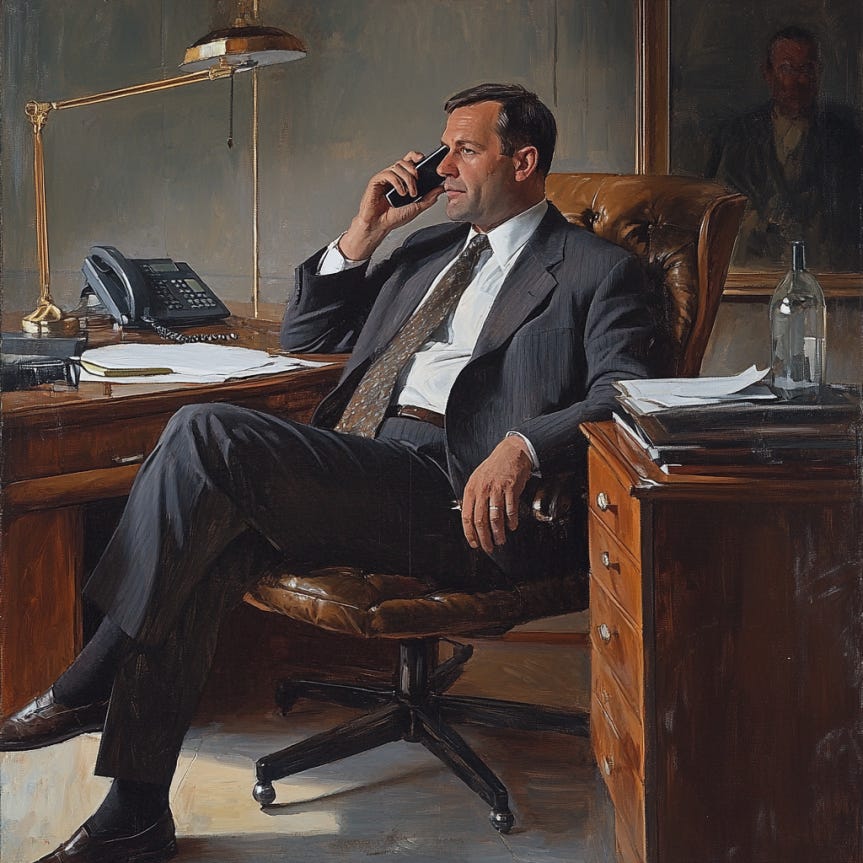When you read the title of this post, you likely thought of some high speed gadget, or maybe a IR blocking blanket to hide you from thermal sensing cameras or sensors, but this post will actually be discussing a far more common device that we likely all have that will effectively render you invisible to people as you pass by.
Lets consider the following scenario,

When we pass by a homeless person asking for money, many of us instinctively avert our gaze, doing everything we can to avoid making eye contact. This behavior stems from an innate discomfort: once eye contact is made, it becomes significantly harder to ignore the person or walk away without acknowledging them. Eye contact humanizes the interaction, making the other person feel real and their plight more personal.
While there is no written rule or social contract that says making eye contact obligates us to give money, our sense of empathy and social responsibility kicks in when we connect with someone visually.
We recognize their humanity and, in that moment, feel an unspoken pressure to help. To sidestep this emotional burden is coming, many of us avoid eye contact altogether, effectively shielding ourselves from the guilt or discomfort of refusing to give. This phenomenon reflects a psychological defense mechanism aimed at preserving our own sense of detachment from a difficult situation.
Think about it, simply by being homeless, the majority of people will literally avoid even looking at them, they have effectively become invisible. Now pretending to be homeless near a target building is good cover for this reason, but it is not the topic of this post … we are getting there.
Lets consider a second scenario,
You are at a cafe working on your laptop when you look up to see someone staring at you, the most common response is for that person to immediately and sheepishly look away instantly … why?
Because it is not socially acceptable to stair at other people, and while once again there is no written rule that says this, we all accept that staring at others isn’t polite and therefore should be avoided.
These types of social expectations that are incredibly common, are what we will be relying on to help us blend into buildings and bypass personnel.
This post, and the “cloak of invisibility” will revolve around the humble cell phone, combined with social norms to disappear.
The Social Psychology Behind Cell Phone "Invisibility"
The modern cell phone acts as a shield, exploiting two powerful social behaviors that help create a perfect cover for slipping into and moving around secure environments.
Social Norm of Non-Interruption
Suppose you’re walking down a quiet office hallway, cell phone to your ear, engaged in what appears to be a serious phone conversation. Anyone observing you will likely hesitate to interrupt, even if they sense something slightly out of the ordinary. Why? Because interrupting someone on a phone call is widely considered rude. People are naturally hesitant to break that social norm unless they have a strong reason to intervene. As a result, you gain a free pass to move through areas without unwanted scrutiny.
In professional settings, people prefer to avoid confrontation or embarrassment. The fear of being perceived as impolite often outweighs any suspicion they might harbor. This aversion is precisely what allows someone posing as an employee or contractor to pass unnoticed, with a simple phone call creating a bubble of social invisibility.
Reluctance to Engage in Uncertainty
Another psychological factor in your favor is the human tendency to avoid involvement in situations that aren't fully understood.
Most people will avoid getting involved in situations that they are not certain of the context, especially when it could negatively affect them. Suppose you are walking into a bank and see two men in construction clothing with a ladder as they work on a security camera on the outside of the building … do you go inside to inquire with the bank as to whether the men are suppose to be there? Of course not.
A confident demeanor, professional attire, and the presence of a prop can easily override most people’s sense of doubt, preventing them from engaging with you.
It’s Not My Job
It is not in the job title of most employees to be security guards, and as such they often will not get involved. First, they believe that the security guards would have performed their duty and if you do get involved regarding a suspicious person you are effectively telling the guard that they are not so great at their job.
Secondly, they have no vested interest, positive or negative, to go above their station and track down or confront a suspicious person, but if they are wrong they understand that they may get in trouble for their efforts.
Given this calculus, why should they bother?
Breaking Mental Models and Expectations
Keep reading with a 7-day free trial
Subscribe to Covert Access Team to keep reading this post and get 7 days of free access to the full post archives.








